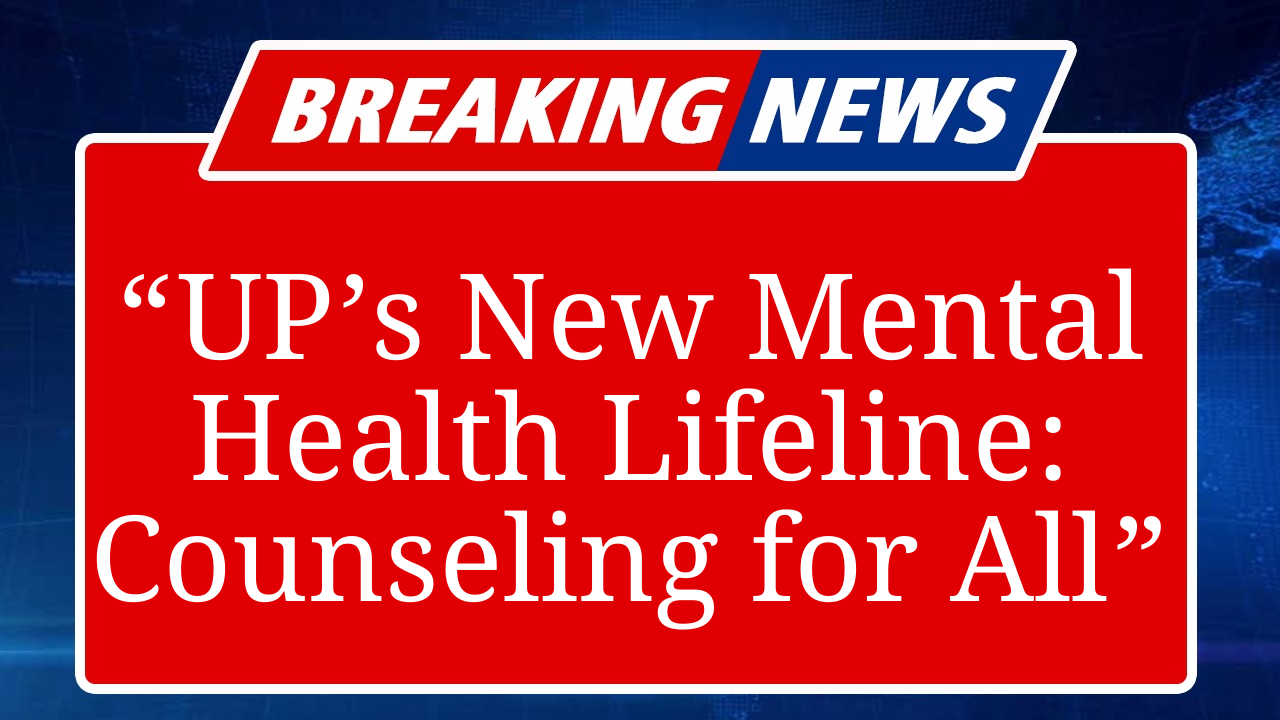Uttar Pradesh is expanding mental health services with new counseling centers across the state to address rising psychological distress. These facilities aim to provide accessible, professional support for issues like anxiety, depression, and stress, particularly in underserved areas. The initiative aligns with national efforts to reduce stigma and improve mental health infrastructure, offering hope to millions.
Uttar Pradesh Enhances Mental Health Infrastructure with Counseling Centers
In a significant step toward addressing the growing mental health crisis, Uttar Pradesh has launched a series of new counseling centers across the state, aimed at providing professional psychological support to its residents. The initiative, announced in early 2025, is part of the state’s commitment to improving mental health infrastructure in response to increasing cases of anxiety, depression, and stress-related disorders, particularly in rural and semi-urban areas.
The new centers, established under the aegis of the National Mental Health Programme (NMHP) and supported by the state’s health department, are strategically located to ensure accessibility. As of February 2025, the state has operationalized 25 new counseling facilities in districts like Lucknow, Kanpur, Varanasi, and Agra, with plans to expand to 50 by mid-2026. These centers are staffed by trained psychologists, counselors, and social workers, many of whom have been trained through collaborations with institutions like the National Institute of Mental Health and Neurosciences (NIMHANS).
The initiative comes at a critical time. According to a 2021 study, an estimated 197.3 million Indians suffer from mental disorders, with Uttar Pradesh contributing significantly to this burden due to its large population. The state’s rural areas, in particular, have historically lacked access to mental health services, with stigma and limited infrastructure exacerbating the treatment gap. The new centers aim to bridge this gap by offering free or low-cost counseling, psychometric assessments, and referral services to psychiatric care where needed.
A key feature of these centers is their integration with the Ayushman Bharat scheme, which has upgraded over 1.73 lakh health centers nationwide to include mental health services. In Uttar Pradesh, 5,000 Ayushman Arogya Mandirs now provide basic counseling and psychiatric medication, with the new counseling centers serving as specialized hubs for more complex cases. The state has also partnered with NGOs like Sangath and the Vandrevala Foundation to train community health workers and counselors, ensuring culturally sensitive and evidence-based interventions.
The Tele MANAS helpline, launched nationally in 2022, plays a complementary role. As of February 2025, it has handled over 1.81 million calls across India, with Uttar Pradesh accounting for a significant share. The helpline offers immediate tele-counseling and referrals, linking callers to the new counseling centers for in-person support. The state has also introduced mobile-based mental health interventions, including the Tele MANAS app launched in October 2024, which provides self-care tools and direct access to professionals.
Local residents have welcomed the initiative. In Varanasi, a 28-year-old teacher, who preferred anonymity, shared, “I struggled with anxiety for years but had no one to turn to. The new center here has been a lifeline—affordable and understanding.” However, challenges remain, including the need for more trained professionals and public awareness campaigns to combat stigma. Experts estimate that India has only one psychiatrist per 100,000 people, far below the global average.
The state government has allocated Rs. 50 crore for the initiative in 2025-26, with additional funding from the central government under the National Health Mission. Plans are underway to introduce school-based counseling programs and workplace mental health workshops, targeting youth and working professionals. These efforts align with the broader national push under the Mental Healthcare Act, 2017, which emphasizes the right to accessible mental health care.
Disclaimer: This article is based on recent reports, government announcements, and publicly available data from sources like the Ministry of Health and Family Welfare, NIMHANS, and news outlets. Information is accurate as of September 2025 and subject to change.

